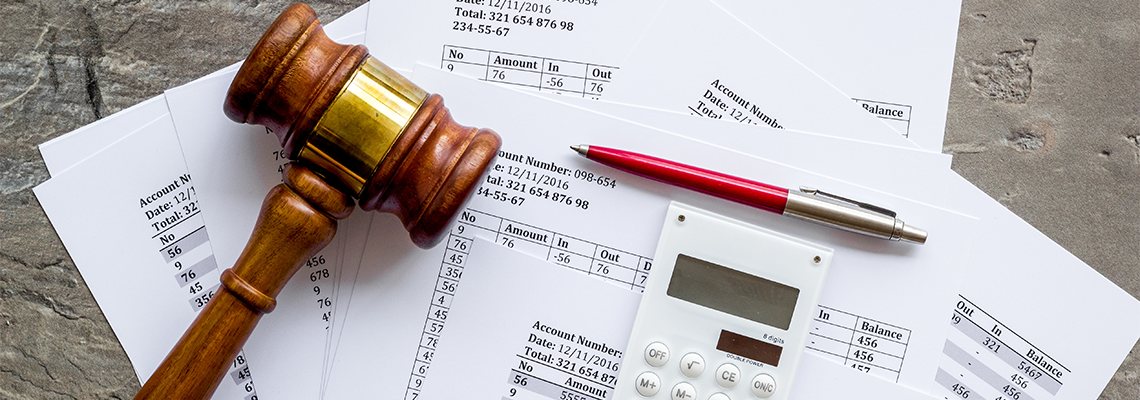
How Bankruptcy Affects Tax Returns
In May 2023, the State of Georgia started issuing refunds to taxpayers from a budget surplus. Those who filed taxes for the 2021 and 2022 tax years qualify for refunds of $250 for single filers, $500 for joint filers, and $375 for single heads of households.
If you are struggling with your finances, you will welcome a little extra cash. However, if you have filed or are considering filing for Chapter 7 or Chapter 13 bankruptcy, you may not be able to keep it, unless you take steps to protect it.
Filing for bankruptcy can give you the fresh financial start you need, but you don’t have to sacrifice everything to get it. As an experienced bankruptcy attorney at Pytte Law, I help clients throughout the state of Georgia move forward with their finances and find peace of mind when they need it most. If you live in Savannah, Ludowici, Hinesville, Statesboro, Richmond Hill, or anywhere else in the state, contact me today.
Is a Tax Refund an Asset?
A tax refund, just as any other cash you have, is considered an asset in bankruptcy. The bankruptcy trustee inventories all assets you have during the process of your case. A failure to report them, even if you have not yet received them, may keep you from having your debt discharged in bankruptcy. It would be no different than hiding cash in an undisclosed bank account. You may even face criminal fraud charges if you intend to hide assets from the court.
Does the Bankruptcy Trustee Take My Tax Refund?
The ability of the bankruptcy trustee to garnish your tax refund depends on the chapter you file and the timing of the bankruptcy filing and refund.
In Chapter 7 bankruptcy, all your non-exempt assets are liquidated, and the proceeds used to pay your creditors. What remains unpaid is discharged, giving you a ‘clean slate’ devoid of debt. If the refund is for taxes paid prior to the discharge of your debts in bankruptcy, it is an asset the trustee can garnish. If you file for bankruptcy halfway through the tax year, the refund on taxes before filing may be in play, but the amount after filing bankruptcy may not be. Your refund will be garnished only once in Chapter 7. Once your debt is discharged, you are allowed to accumulate assets again.
In Chapter 13 bankruptcy, you agree to a plan that allows you to repay your debt over a three- to five-year period. Chapter 13 allows you to keep most of your assets, but not your tax refund unless it is specifically protected.
Are There Ways I Can Keep My Tax Refund?
How to keep your tax refund after filing for bankruptcy is an important conversation to have with your bankruptcy attorney. There are exemptions the State of Georgia allows on certain assets in bankruptcy. These are designed to allow you to keep assets necessary for living and working. Among the exemptions is up to $11,200 in assets, but there is a process for actually having those exemptions approved. You should talk to your bankruptcy attorney about how you can protect your refund and other assets using exemptions.
Adjusting tax withholdings may prevent you from receiving a tax refund, but it allows you to use your money as you need it throughout the year. Refunds are generated because you had more money withheld than necessary to pay the taxes you owe. By having less money withheld from every paycheck, you put more money into the bank every pay period. That helps you pay more on your debt and for living expenses as you go. Your goal for your income taxes should be to owe nothing and receive no refund.
You may also be able to protect your refund by spending it on necessary items, such as rent and utilities, but not on paying credit card debt or other loans. The court has stringent rules regarding the use of cash to pay certain debts during bankruptcy. Running afoul of them can cost you the discharge of debt, so consult with your lawyer before spending anything.
Can an Attorney Help?
An experienced bankruptcy attorney knows bankruptcy inside and out. Your attorney will know what assets are and are not exempt, and how the process can protect as many of them as possible while still giving you freedom from debt.
The key is incorporating these protections in your initial bankruptcy filing. You may not be able to protect assets if they are not addressed from the beginning, just as not including a creditor on your filing doesn’t protect you from that creditor’s actions down the road.
Can an attorney help? The right attorney can make all the difference—with your tax refund, your home, and more.
Quality Help Is Here
If there is a way to protect any of your assets, including your tax refund, I will know how it can be done. I have helped hundreds of Georgians do so in Chapter 7 and Chapter 13 bankruptcy.
The first step to protecting your assets is to talk to me about them. If you live in Savannah, Hinesville, or anywhere in Georgia, reach out to Pytte Law now. I’m here to help you move forward.